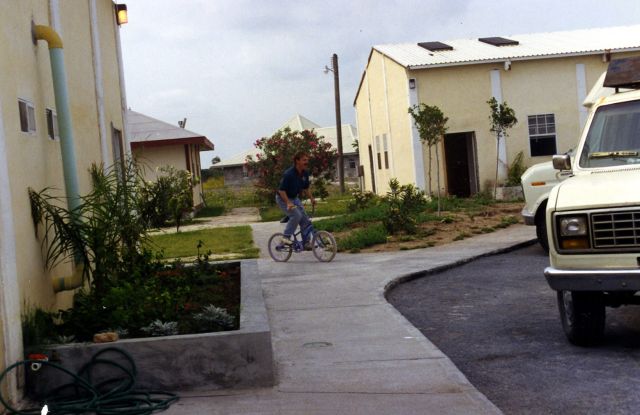

Differences between short and long-term teams
I love discipleship. And that’s why I love short-term mission (STM) teams. Nothing helps mold a young disciple like an STM experience. Jesus used them to shape his disciples and I believe intends for us to do the same.
STM teams are a discipleship tool whose focus is the participants. I…
By Seth Barnes
 I love discipleship. And that’s why I love short-term mission (STM) teams. Nothing helps mold a young disciple like an STM experience. Jesus used them to shape his disciples and I believe intends for us to do the same.
I love discipleship. And that’s why I love short-term mission (STM) teams. Nothing helps mold a young disciple like an STM experience. Jesus used them to shape his disciples and I believe intends for us to do the same.
STM teams are a discipleship tool whose focus is the participants. In contrast, long-term missionary teams exist to help their members reach out to the field. People fall in love with missions on an STM that changes their life, but most are ill-equipped to go long-term. If they do go, they need a lot of preparation to be effective.
At Adventures, we’re learning how to send long-term teams that are as good as our short-term teams.
A lot of our graduating racers want to go to the field on their own. But the sad fact is, most of them will not make it very long. They go because they want to help heal the pain they’ve seen on the field. But without the support systems to help them, they’ll struggle to stick it out.
It helps those who would go long-term or those who would send them to know what the differences are between short-term and long-term teams.
Short-term Teams
- Project-based
- Participant-centric
- Time-bounded
- Partner-dependent
- Leader led
- Cultural outsiders
Long-Term Teams
- Relationship-based
- Field-centric
- Open-ended
- Incarnational
- Multiple leaders
Both long-term and short-term teams share some requirements if they are to be effective.
Requirements
- Listen to God
- Wield spiritual authority
- Team skills
- Heart for target group (in the host country)
The long-termers need some additional skill sets if they are to be successful: Culture assimilation skills, an ability to ask questions, an ability to partner, and a strong spiritual foundation for starters.
If you’ve been convicted to help meet the needs you’ve seen on an STM, I hope that you’re considering how to go back and make a difference. The world needs the hope you can provide.
And if you do, you may want to ask yourself if you’ve got what it takes. I suggest you begin by finding a good sending team that will help you make the switch in focus from short-term to long-term.



Really like this, Seth. I have fought with myself many times on whether or not STM are a waste of time when compared to the relationship aspect of LTM. They really are both necessary and vital for the reasons you laid out. Great bullet points!
Seth … Great Stuff!!! STMs & LTMs are not an either/or proposition but a both/and endeavor. May God continue to use us to reach many more seeking to hear and follow JESUS to the ends of the earth. I count it a privilege to have been a small part of the process while at AIM … THANKS!
Great points, Seth! I work in the planning/implementing STM field, and while there are definite shortcomings, STMs can be invaluable. Thanks for delineating the significance of BOTH short term and long term missions. May Christ be glorified by both!
This was an encouraging blog to stumble across. It’s comforting to know this is something you’re thinking about. Keep the brainstorming flowing…short term & long term are two very different things indeed. But, there are people/organizations who have sent out successful long term missions teams who might be helpful to look to for insight along the way. See you soon!
Praise the Lord,would you please connect me with STM mission.
Greetins! Great to read your thoughts and find this foram.
Love you site. I have been a LTM for 20 years. I have seen STM teams done poorly and have seen and done very many myself and seen God do wonderful things in Lives of those who “go”. Now after 20 years with the same mission board (Brazil Gospel Fellowship Mission) we have changed mission boards and been invited by Dan Bowers (an mk)with Vision Sporting to join them. We have started a ministry called Wordless Ministries Foundation. Because I have seen that when STM, done properly as a discipleship method, are so effective in my mind to wake up the American Christian Church. Realizing that Missions is not a missionary thing but a Christian thing. As believers come to under stand that all Christinas must be doing there part, either praying, giving or going. And I have seen that to be true in the teams that I have taken to the field of Brazil. It is though, way beyound what the team will do on the Field. It it is just something for the American believer to mark of as that is something I have done, then do not go. It must be more than that as God works in your own life during and after the experence. I will cut this short.:) I am passionat about this topic. And am blessed to find this site, and now Seath to be recieving daily your updates. If any one wants to see a short video you can go here:http://www.youtube.com/watch?v=3RRw1JZjJKU&feature=related
Haven’t been following the blog very closely since I left (long-term) for Colombia – but saw this one and wanted to say thanks! This really clearly organizes the difference between ST and LT mission. If/when I get to work with a group of short-termers, I will definitely refer back to this. Thank you!
Haven’t been following the blog very closely since I left (long-term) for Colombia – but saw this one and wanted to say thanks! This really clearly organizes the difference between ST and LT mission. If/when I get to work with a group of short-termers, I will definitely refer back to this. Thank you!